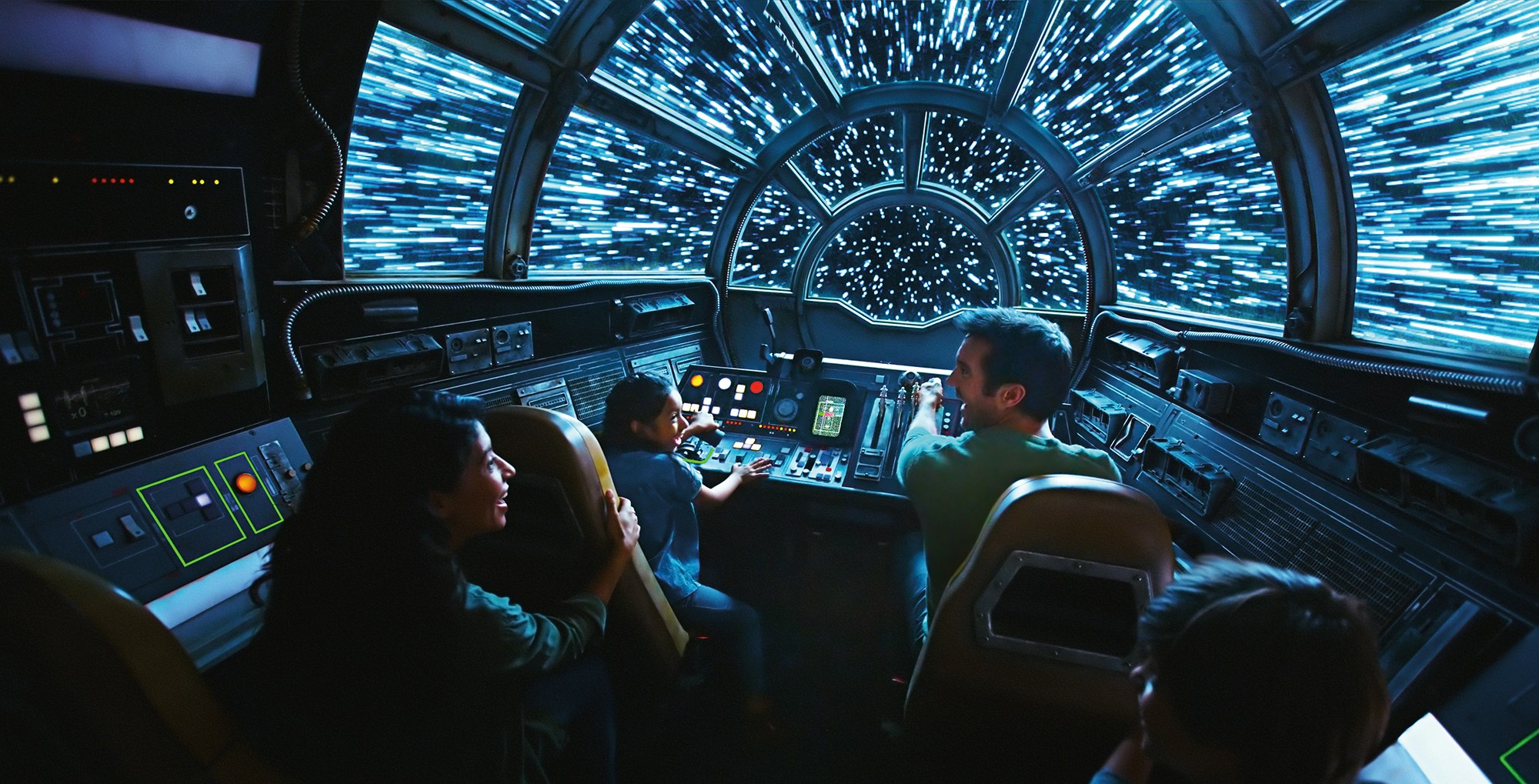It’s a special week for the 177,000-odd people in England and Wales, and many more around the world, who define their religion as Jedi: Saturday is Star Wars Day (May the Fourth, geddit?), the annual grassroots celebration of all things related to that galaxy far, far away.
Each year, fans of the franchise don robes, put lightsabers on charge and raise a glass of Bantha-blood fizz to the likes of Luke Skywalker, Princess Leia and Han Solo – or, if you bat for the Dark Side, Darth Vader and various lesser Darths. (Note to the Ewok-in-chief: no one, but no one, celebrates Jar Jar Binks, George.)
From uber-fans who livestream their reactions on YouTube as they watch trailers for forthcoming movies right down to closet-dwelling admirers of this rich fictional world like me, the creative juggernaut that first rolled into cinemas back in 1977 shows no sign of running out of road.
An expanding universe
Just like the real one, the Star Wars universe just keeps on expanding, an inflationary cultural phenomenon that has long outgrown its original medium, spawning countless spin-offs – books, games and enough merch to fill the hangar bay of a Star Destroyer (USD$32 billion of it, to be precise).
A few weeks ago, for example, I invested a chunk of cash in a Lego model of Luke’s X-Wing Starfighter (this age-inappropriate toy is now safely stowed in the eaves, but I’m confident that the kids will want to lead a Rebel raid on a half-built, papier mâché Death Star when the time is right – no, I defo didn’t buy it for myself).
And later this month, there will be a novel way to live this most protean of brands as never before: on the last day of May, Disneyland in California will lift the veil on the first phase of Star Wars: Galaxy’s Edge, a gazillion-dollar extension of the theme park that will, purportedly, transport guests to the remote planet of Batuu.
Once there, they can rub shoulders with shifty inter-galactic smugglers, pledge their undying allegiance to the Resistance or throw their lot in with the bad guys; they’ll even be able to take control of ‘the fastest hunk of junk in the galaxy’, aka the Millennium Falcon, thus fulfilling the ultimate fantasy of many a middle-aged geek.
 Visitors to Star Wars: Galaxy’s Edge can take the controls of the fastest ship in the galaxy, aka the storied Millennium Falcon © Disney Parks
Visitors to Star Wars: Galaxy’s Edge can take the controls of the fastest ship in the galaxy, aka the storied Millennium Falcon © Disney ParksThat’s just for starters, too: a second, even shinier phase of this mega project will open later this year, as will a separate Star Wars-themed land at Walt Disney World in Florida. Price hikes notwithstanding, so popular are these attractions likely to be that Disney has made special arrangements to regulate the flow of visitors.
Putting any cynicism aside, there is much to admire about the ambition of all this. Given its storytelling skill and commercial nous, Disney is perhaps the perfect custodian of Star Wars; here was the ideal opportunity for its famed imagineers to dream the dreams of a billion fans and make them ‘real’ (note, pedants: there is no way to calculate the actual number of fans, but bearing in mind that the films alone have grossed nearly USD$10 billion, we can safely say there are… a lot).
Ever since Walt Disney opened his first resort in 1955, the company has pioneered a form of travel experience like no other. It’s not for everyone, of course – but from what I can see, it’s an experience in growing demand as theme parks proliferate around the world, perhaps supplanting other points of interest, whether natural or cultural, on our mental maps.
Escape and enlightenment?
The big boys – Disney itself, plus fellow industry titans like Merlin and Universal, and even lesser lights – are ceaselessly expanding their portfolios of parks, rides and hotels to cater for that demand, particularly in Asia where an emerging middle class’s thirst for entertainment is the engine of development.
Jediism never made it as an official religion. But one can make a case that theme parks are fast becoming to the 21st century what the great icons of religious architecture were to the 20th: places of pilgrimage where we seek escape and enlightenment. Okay, perhaps that’s not so true of Tyra Banks’ Modelland, but you catch my drift.
Meanwhile, in a strange twist, there is the curious case of Venice, a place that has become ever more theme park-like in its struggle to cope with a relentlessly rising tide of summer visitors. Attempts to install turnstiles on the Piazzale Roma might have foundered, but the mayor still plans to introduce a booking system for tourists in 2022, forcing visitors to reserve access to the city in much the same way as they might for, say, Star Wars: Galaxy’s Edge…
